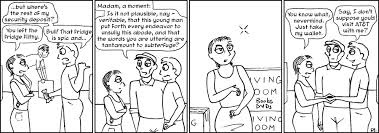
记忆方法
将“inveigle”分解为“in”+“veil”+“gle”。想象一个 veil(面纱)被巧妙地(in)揭开,同时透露出一丝 gleam(光辉),代表用某种手段诱使或巧妙地说服他人。通过这种场景联想,可以帮助记忆单词“inveigle”的意思是诱骗或哄骗。
以上内容由AI生成, 仅供参考和借鉴
中文词源
inveigle 引诱,欺骗
来自古法语avugle,使眼瞎,欺骗,来自拉丁语*aboculus,没有眼睛,失去视力,来自ab-,没有,oculus,眼睛,词源同eye,inoculate.引申词义引诱,欺骗,拼写可能受inveigh影响。
英语词源
- inveigle
-
inveigle: [15] The French verb aveugler means ‘blind’ (it is a derivative of the adjective aveugle ‘blind’, whose probable source was the medieval Latin phrase ab oculīs ‘without eyes’). It passed into Anglo-Norman, with alteration of the prefix, as envegler, and English acquired this originally in the metaphorical sense ‘deceive’ – which in the 16th century developed to ‘entice, seduce, persuade’.
- inveigle (v.)
- late 15c., "to blind (someone's) judgment," alteration of Middle French aveugler "delude, make blind," from Vulgar Latin *aboculus "without sight, blind," from Latin ab- "without" (see ab-) + oculus "eye" (see eye (n.)). Loan-translation of Greek ap ommaton "without eyes." Meaning "to win over by deceit, seduce" is 1530s.
权威例句
- 1. In the main, the Eisenhower administration did not try to inveigle Kennedy into underwriting it's policies.
- 总的说来, 艾森豪威尔政府并没有设法诱骗肯尼迪在它的政策上签字画押.
- 2. With patience and diplomacy, she can eventually inveigle him into marrying her.
- 她靠耐心和交际手腕, 到头来是能引诱他与她结婚的.